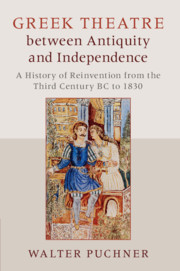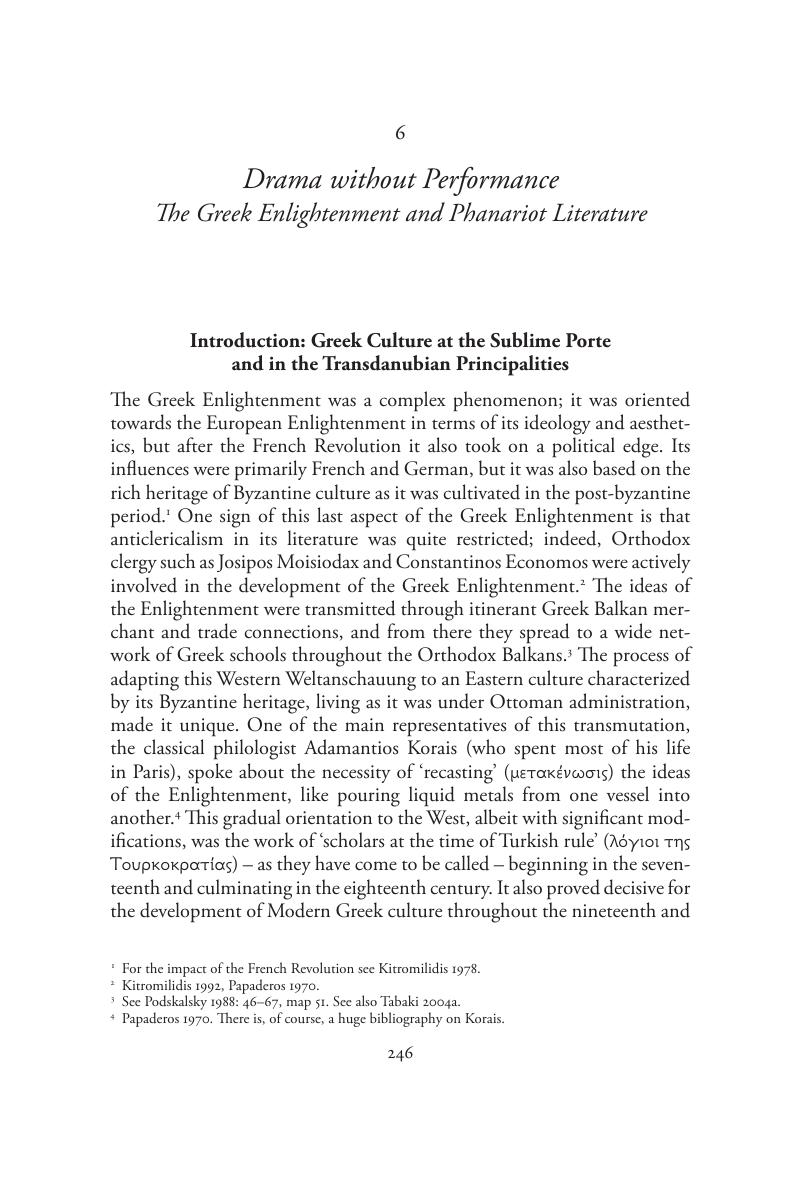 Greek Theatre between Antiquity and Independence
Greek Theatre between Antiquity and Independence Book contents
- Greek Theatre between Antiquity and Independence
- Greek Theatre between Antiquity and Independence
- Copyright page
- Contents
- Preface
- Acknowledgements
- Notes on the Text
- Introduction
- 1 The Long Twilight of Ancient Theatre and Drama
- 2 Byzantium
- 3 Re-Inventing Theatre
- 4 Shaping a Theatre Tradition
- 5 Jesuit Theatre in Constantinople and the Archipelago (1600–1750)
- 6 Drama without Performance
- 7 Rehearsing the Revolution
- 8 Outlook
- Epilogue
- Index
- References
6 - Drama without Performance
The Greek Enlightenment and Phanariot Literature
Published online by Cambridge University Press: 16 June 2017
- Greek Theatre between Antiquity and Independence
- Greek Theatre between Antiquity and Independence
- Copyright page
- Contents
- Preface
- Acknowledgements
- Notes on the Text
- Introduction
- 1 The Long Twilight of Ancient Theatre and Drama
- 2 Byzantium
- 3 Re-Inventing Theatre
- 4 Shaping a Theatre Tradition
- 5 Jesuit Theatre in Constantinople and the Archipelago (1600–1750)
- 6 Drama without Performance
- 7 Rehearsing the Revolution
- 8 Outlook
- Epilogue
- Index
- References
Summary

- Type
- Chapter
- Information
- Greek Theatre between Antiquity and IndependenceA History of Reinvention from the Third Century BC to 1830, pp. 246 - 268Publisher: Cambridge University PressPrint publication year: 2017


